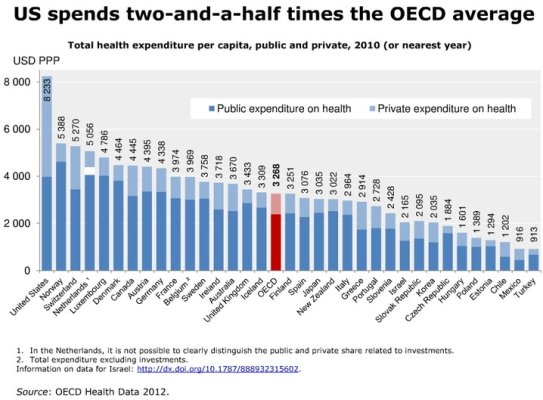Bitter Pill: Why Medical Bills Are Killing Us | TIME.com
Steven Brill wrote this long and somewhat disconcerting article in Time Magazine on the increasingly costly medical bills. The almost unimaginable magnitude of the coming health care bills for the large population of aging boomers can exhaust private insurance and government resources. Employers may no longer be able to afford paying the ever increasing premiums for their employees. Private insurance companies are not bottomless wells, and more and more of them can go into bankruptcy or will just quit the field when the business become not viable economically. I hope I am not being chicken little over this.
Steven Brill wrote this long and somewhat disconcerting article in Time Magazine on the increasingly costly medical bills. The almost unimaginable magnitude of the coming health care bills for the large population of aging boomers can exhaust private insurance and government resources. Employers may no longer be able to afford paying the ever increasing premiums for their employees. Private insurance companies are not bottomless wells, and more and more of them can go into bankruptcy or will just quit the field when the business become not viable economically. I hope I am not being chicken little over this.
Last edited:


